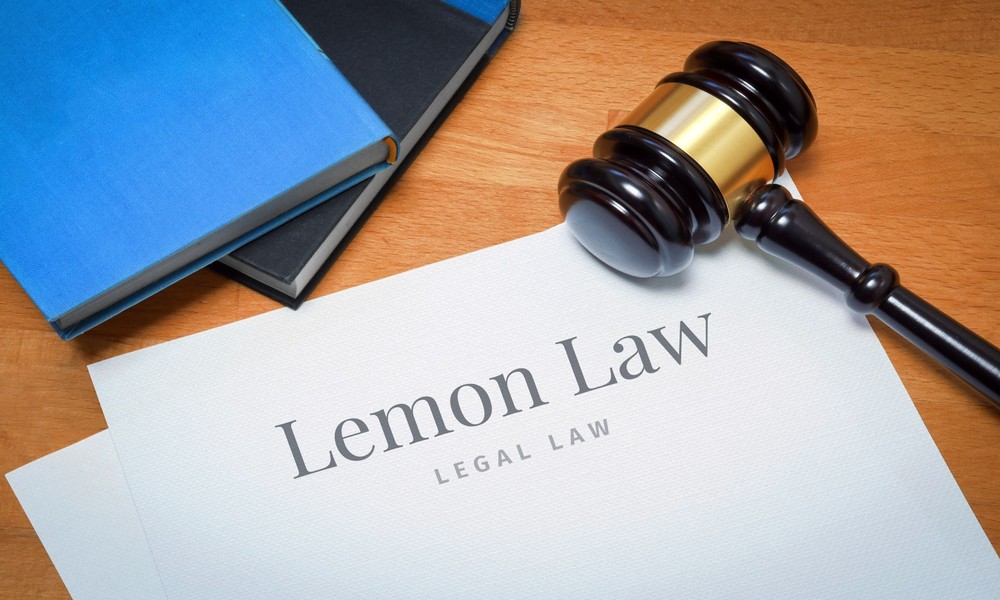Boise’s business community moves quickly, and even well-run companies can find themselves addressing disagreements over contracts, deliverables, or governance. When conflicts emerge, success often turns on how promptly decision-makers evaluate risks and choose the most effective resolution path. This guide explains the approaches that tend to work in Boise—from negotiation and mediation to arbitration and, when necessary, litigation—while emphasizing practical steps that preserve operations and relationships. You’ll learn how to prepare evidence, protect reputation, and time your moves for maximum leverage. Whether you’re leading a startup or managing a mature enterprise, the focus is on clarity, efficiency, and results. Firms such as Exceed Legal use structured, evidence-driven methods, and coordinating early with a knowledgeable Business Disputes Attorney can help shape an outcome that aligns with your company’s goals.
Common Business Conflicts Among Idaho Partnerships and Corporations
Disputes that surface in Boise rarely come out of nowhere; most develop from patterns in contracting, communication, or governance. Contract breaches are a frequent culprit, ranging from missed milestones and scope creep to late payments and warranty disagreements. Internal friction also appears in shared ownership structures—think voting deadlocks, dividend policies, or disputes about capital calls and profit allocations. In growth phases, non-compete and non-solicit questions arise as teams shift and client relationships move. Intellectual property issues—especially around licensing, trade secrets, and software ownership—can escalate quickly if agreements and access controls are unclear.
Patterns Local Companies Encounter
Idaho’s statutory framework and local market habits inform the character of many disagreements. For instance, closely held companies may face shareholder oppression claims when minority owners feel excluded from information or profit participation. Vendor and client disputes often hinge on ambiguous statements of work, where performance metrics or acceptance criteria were never clearly defined. Multi-location enterprises see jurisdiction and venue questions come into play, particularly when an Idaho contract interacts with an out-of-state forum clause. In this environment, a Business Disputes Attorney helps untangle the interplay between contract language, industry standards, and practical remedies, guiding companies toward solutions that minimize disruption while preserving long-term relationships and market credibility.
The Importance of Early Legal Intervention to Minimize Damages
The first hours and days after a conflict arises can determine both the cost and trajectory of the matter. Early engagement clarifies rights, obligations, and deadlines, and it often prevents missteps that later become expensive to fix. Implementing a litigation hold preserves emails, messaging apps, and shared drives, reducing the risk of spoliation claims that can tilt leverage in an opponent’s favor. Counsel can assess whether immediate relief—such as a temporary restraining order or preliminary injunction—is warranted to protect trade secrets, customer relationships, or critical inventory. Just as importantly, proactive outreach can reset expectations with the other side and open a window for negotiated solutions before positions harden.
Triage Steps in the First 72 Hours
Effective triage blends legal analysis with operational practicalities. First, isolate the precise breach or conduct at issue and identify the governing documents, including amendments and incorporated policies. Second, map decision timelines—notice requirements, cure periods, escalation procedures, and any mandatory alternative dispute resolution provisions. Third, evaluate business impacts: revenue at risk, reputational exposure, and operational dependencies that must be stabilized. Finally, align on a communication plan; designate a single point of contact to avoid mixed messages and protect privilege. Firms like Exceed Legal bring checklists, model communications, and playbooks that help leadership quickly gauge options. Looping in a seasoned Business Disputes Attorney at this stage often reduces total spend by preventing avoidable detours and focusing effort where it matters most.
Mediation and Arbitration as Cost-Effective Alternatives to Litigation
Many Boise companies benefit from resolving conflicts outside the courtroom, where timing and cost can be more predictable. Mediation offers a confidential, facilitated negotiation that helps parties explore interests behind their positions, often preserving relationships that matter operationally or reputationally. It’s flexible—parties can narrow issues, exchange proposals, and craft creative terms a court might not order. Arbitration, by contrast, functions more like a private trial, typically faster than litigation and overseen by an arbitrator with industry or subject-matter expertise. Both processes can substantially reduce discovery burdens, especially when the governing clause limits depositions or mandates streamlined document exchange.
When Each Method Works Best
Mediation is well-suited to disputes involving ongoing collaboration—distribution agreements, software services, joint ventures—where the cost of rupture exceeds the dollars in play. The process encourages candid, off-the-record discussion, allowing executives to test outcomes without committing. Arbitration can be optimal when technical questions dominate or when a contract already includes a robust arbitration clause specifying forum, rules, and relief. Well-drafted ADR provisions also influence leverage: fee-shifting terms, injunctive carve-outs, and discovery limits shape each side’s risk calculus. Local counsel familiar with Boise mediators and arbitrators can steer case selection and procedural ground rules in productive directions, aligning forum with the company’s timeline and budget.
Collecting Evidence and Documentation for Corporate Disputes
The strength of any business dispute strategy hinges on the quality and organization of the evidence. Start by locking down potentially relevant electronically stored information—email, shared drives, collaboration tools, CRM records, and mobile data—using a clear, written hold notice. Preserving metadata matters: timestamps, authorship, and revision histories often make or break a credibility narrative. Contracts, statements of work, change orders, and invoices should be gathered in complete, version-controlled sets to show context, not just outcomes. Internal comms that explain decision-making—Slack threads, board packets, and project updates—often tell a compelling story when organized chronologically and linked to contract milestones.
Building an Organized Record
Think like an investigator and a storyteller at once. Create a master chronology that aligns facts with documents, noting gaps that require follow-up from custodians or third parties. Use consistent file naming conventions and access permissions to protect privilege while keeping the team synchronized. For financial disputes, reconcile ledger entries with purchase orders, approvals, and bank records to show the flow of value and responsibility. In technical matters, capture system logs and admin records demonstrating access controls and change management. A disciplined approach to evidence collection not only strengthens negotiation posture but also speeds any later motion practice or hearing, helping the company resolve disputes on its terms and timeline.
How Attorneys Protect Company Reputation During Legal Challenges
Legal challenges unfold in public as well as private arenas, and the reputational stakes can rival the financial ones. Counsel often coordinates with communications teams to develop a central narrative aligned with legal strategy, ensuring consistency across press, customer updates, and internal channels. Early moves may include seeking protective orders, reinforcing NDAs, and limiting unnecessary disclosures in pleadings. When counterparties or media scrutiny create pressure, a calm, factual message can prevent misinformation from snowballing. Thoughtful timing—releasing updates after a procedural win, for instance—can signal stability and control to stakeholders.
Balancing Transparency and Confidentiality
Companies must disclose enough to maintain trust without compromising legal positions. Attorneys curate what can be shared—procedural posture, commitment to resolution, and continued service levels—while keeping privileged analysis and strategy shielded. Terms negotiated in settlements often include non-disparagement and confidentiality provisions that prevent ongoing public friction. Monitoring social channels and industry chatter helps identify inaccuracies quickly; when needed, counsel crafts targeted corrections that avoid argumentative back-and-forth. In sensitive scenarios, a Business Disputes Attorney can liaise with insurers, investors, and key customers to calm concerns, aligning risk management with brand stewardship and ensuring operational continuity as the dispute progresses.
Successful Resolution Strategies Used by Boise Business Attorneys
Winning strategies in Boise rely on clear goals, credible facts, and disciplined negotiation. Counsel starts by quantifying exposure and upside with data-backed damages models—lost profits, mitigation, and interest—so proposals are anchored in reality. They pressure-test the other side’s case by highlighting evidentiary gaps, procedural missteps, or contract ambiguities that undermine confidence. Where appropriate, they seek early injunctive relief or targeted motions to narrow issues, then leverage those rulings at the bargaining table. Throughout, they maintain professional tenor, which keeps lines open for creative deal structures and preserves the possibility of future cooperation.
Practical Playbook for Boise Companies
Companies that consistently secure favorable outcomes apply a repeatable playbook. They define a realistic best alternative and walk-away point, ensuring offers remain firm yet flexible. They sequence concessions—payment timing, transition services, or warranty extensions—so every give yields a get. They use settlement frameworks that pair dollars with non-monetary protections like IP safeguards or clarified KPIs, cementing operational certainty. And they prepare decision-makers for the cadence of mediation or arbitration, reducing surprises and maintaining momentum. When a matter demands deeper resources or rapid deployment, partnering with a team like Exceed Legal ensures access to seasoned negotiators, efficient discovery protocols, and a reputation for pragmatic, results-oriented advocacy that keeps Idaho businesses moving forward.











